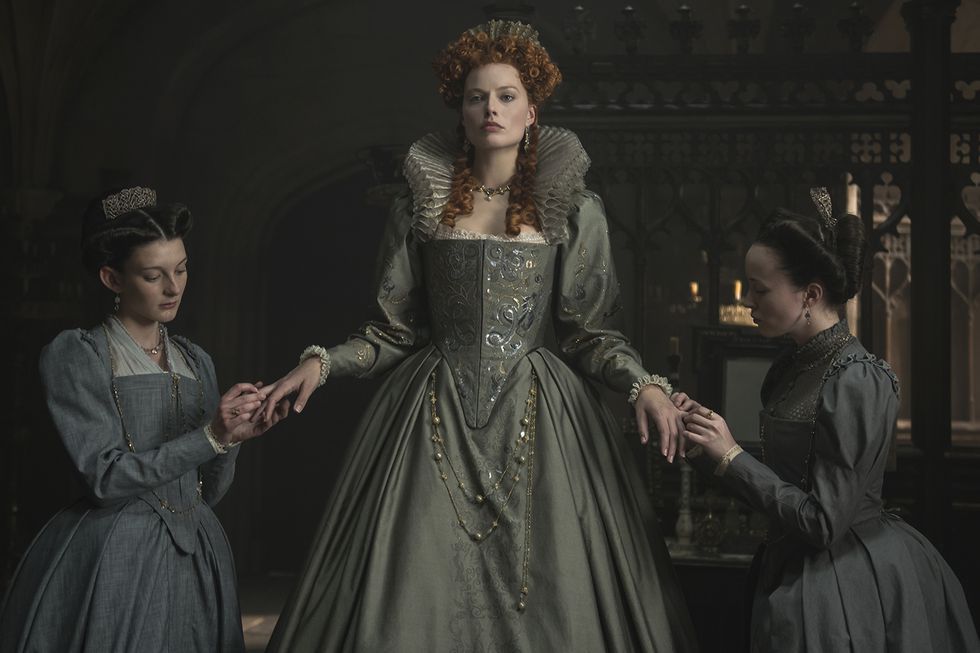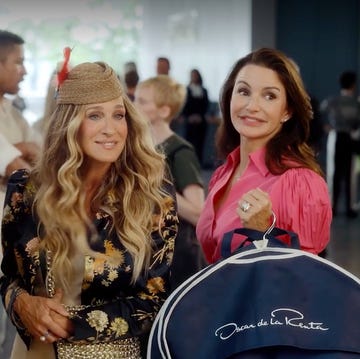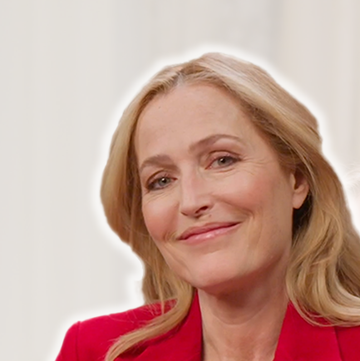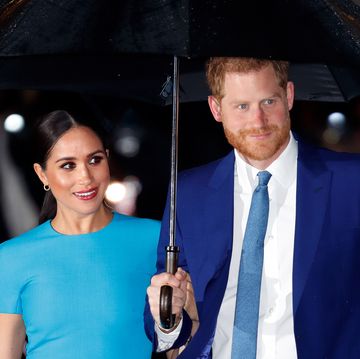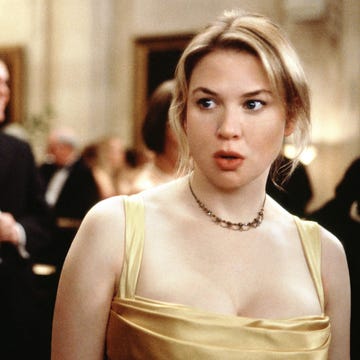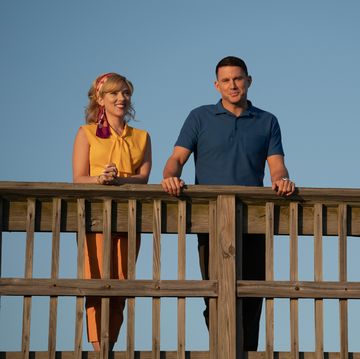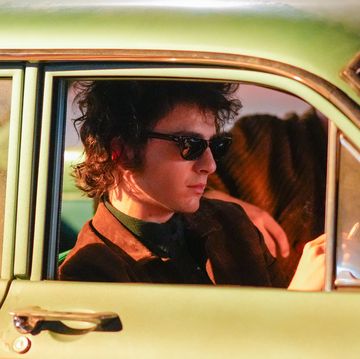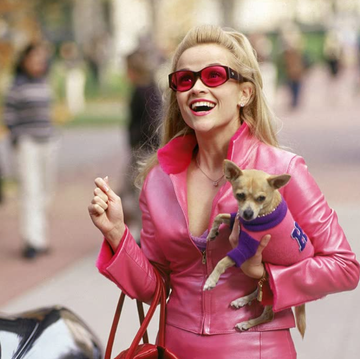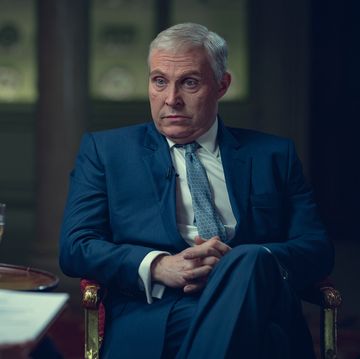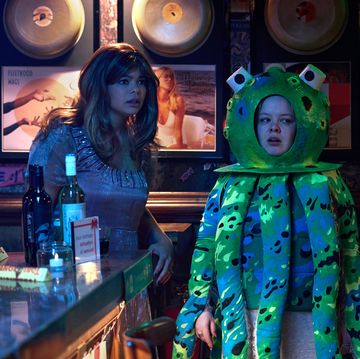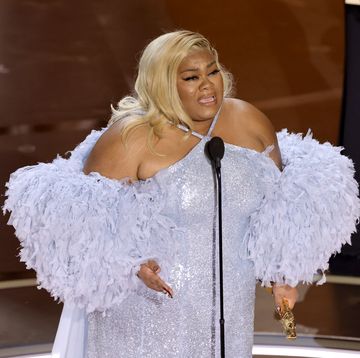What first comes to mind when you think of Zac Efron? His basketball-court choreography in High School Musical? His heart-racing strip tease in Bad Neighbours 2? His topless muscle-flexing when winning the MTV Movie Award for Best Shirtless Performance? If you cited any of these moments – or indeed the countless others where Efron serves as eye candy in varying states of undress – you perceive him as most other people do. In the public imagination, Zac Efron is thought of as hot… and that’s pretty much it. Even the way he’s described on-screen reduces him to his good looks, with leering comments like “if that boy were an apple, he’d be delicious” and “that is the sexiest guy I’ve ever seen” proliferating throughout his filmography.
When researching for this article, I was surprised to discover that there have been relatively few long-form profiles written about him, given the enormity of Efron’s stardom. The primary medium he uses to interact with the press is video (this may be a publicist-sanctioned decision, but it gives the impression that fans just want to ogle him and don’t really care what he has to say). On the rare occasions he does speak out, he hints at his dissatisfaction with being a prisoner of his image, sounding off in a 2016 interview about how, no matter what he does, “he’s still just that fucking kid from High School Musical”. But how did he get so typecast? And why should we take him seriously now? Join me on a trip down memory lane as I map out the path that led Zac Efron from Troy Bolton to Ted Bundy.
The chaste romantic lead
Efron first came to our attention as the sweet basketball captain Troy Bolton in Disney’s made-for-TV movie High School Musical. With his proto-Bieber haircut and prepubescent voice, his character is as non-threatening as they come, an almost entirely desexualised boy-next-door. Across the franchise’s three films, Troy is largely distinguished by his childlike behaviour: he drinks milk with dinner, messes around in his treehouse and sings in a remarkably high-pitched falsetto. There is even a running joke across the trilogy that he and his sweetheart Gabriella can’t steal a moment alone to kiss (it is only after three interruptions that the couple finally locks lips for the first time at the very end of the second film).
The way Leonardo DiCaprio was seen only as Jack Dawson to the Titanic-frenzied teens of 1997, Zac Efron had become nothing more than Troy Bolton. This conflation of actor with part was no doubt accelerated by the fact that Gabriella was played by Efron’s then-girlfriend Vanessa Hudgens, which further blurred the boundary between fiction and reality. I spoke to Olesya Rush, who played the pianist Kelsi in the series, to find out what it was like sharing scenes with Efron. “Working with Zac was always easy,” she tells me. “He laughed with you and we would play pranks on each other as a cast. He’s a generous actor and showed up as a professional even at 16 years old. You could tell he had stepped into his chosen career and although at times I’m sure it’s been challenging, he’s exactly where he needs to be.”
Challenging it certainly was. When High School Musical 3 wrapped, Efron had set his sights on more creatively stimulating projects, rejecting a starring role in a remake of Footloose (for being too “limiting”) and saying at the time, “I’m already trying to branch out and diversify.” And yet his follow-up, the hokey time-travel flick 17 Again, is, for the most part, more of the same. As the high-schooler Mike O’Donnell, Efron plays basketball, resolves his brewing identity crisis and – surprise, surprise – gets the girl. Opportunities for him to capital-A act are limited, since the emotional climax for his character (when he discovers his girlfriend is pregnant) is delivered in a silhouetted wide shot with no dialogue, denying us the chance to see his reaction to the news. There is, however, a fundamental shift between how the actor is shot in High School Musical and 17 Again. The latter film marks the introduction of Zac Efron as sex symbol – tellingly you only have to wait a mere 45 seconds into the opening credits if you want to catch a glimpse of those now-familiar abs.
There is a scene in 17 Again – that was much swooned over with adolescent yearning at my secondary school – in which the camera simply devours Efron. After a makeover, that obligatory teen-movie moment, the actor emerges from a sleek sportscar in a snugly fitting white tee and aviators, a leather jacket casually swung over his shoulder. His transition to heartthrob is documented with emphatic, fetishising repetitions: he is seen stepping out of the vehicle three times, taking off his sunglasses twice. In a parallel edit (of Efron walking across the car park and the school corridors), the camera cross-cuts from multiple angles to give us every possible view of him. Frontal shots, profiles, medium wides, close-ups, full-body... you name it, it’s there. Much like decades of women in cinema, he is shot like an object. Thematically he is still sexless, as indicated by the alarming sequence where he pushes abstinence on his classmates (perhaps a hangover from his squeaky-clean Disney days); but formally he is all grown up.
The cool frat dude
A series of failed attempts to become a ‘serious actor’ followed, all of which were box-office bombs that didn’t even break even. The JFK drama Parkland made a pitiful $1.3 million (catastrophic given its $10 million budget); the death-row mystery The Paper Boy took home $3.78 million on a $20 million budget; and the thriller At Any Price was the most embarrassing, raking in a risible $487,455 in ticket sales.
So Efron decided to give the people what they wanted and leaned into his hot-guy persona, bulking up and breaking free from his sanitised, PG-13 image. Zac Efron 2.0 appeared in raunchy, testosterone-fuelled comedies, where low-brow sexual and scatological humour is de rigueur: one minute he’ll be lying naked across a toilet bowl after a Viagra-induced erectile mishap (That Awkward Moment), the next he’s selling a plaster-cast dildo replica of his own penis (Bad Neighbours).
A bros-before-hoes mentality underlines both movies, and it is patently explicit in Bad Neighbours, where Efron and his co-star Dave Franco riff on this toxic-male conception of fraternity, proudly admitting to valuing “junk before trunk”, “balls before dolls”, “these nuts before skinny sluts”, etcetera, etcetera. Efron’s characters in these films – and other popcorn fodder of their ilk including Dirty Grandpa, Baywatch and Mike and Dave Need Wedding Dates – are attractive but dumb ‘lads’, gently ridiculed for their lack of intelligence.
Although entertaining enough in a guilty-pleasure, switch-off-your-brain sort of way, these R-rated comedies were not the way for Efron to garner the critical respect he had previously sought out. Perhaps most fascinating is how journalists question him about these projects in (video) interviews. To say they’re dismissive would be putting it lightly. As expected, reporters take a lascivious glee in primarily asking his female co-stars about him, rather than their own contribution to the films: “Did Zac text you about his diet?” (2017); “Any chance you had a Zac Efron poster on your wall growing up?” (2017); “What was it like being up close and personal with all of that?” (2016). The actresses on a Bad Neighbours 2 junket addressed this overt objectification - Kiersey Clemons said, “I would love if someone asked about Zac’s personality”, while Chloë Grace Moretz agreed with a forceful “No one ever does!”. Beanie Feldstein added “He’s more than his body, people!”
Much like the camera gawking at his muscular frame in his movies, the media treats Zac Efron how Hollywood has historically treated actresses: as a beauty to be appreciated aesthetically but not intellectually. In the aforementioned interview, he is asked whether “there is more to you than a pretty face and abs” and “how do you react to being the object of this objectification?” With his typical understated charm, he quietly responds: “It’s rough... I dunno, I signed up for it. I’ll go do some serious acting someday.” It turns out that day has come.
The awards-season player
Up until now, the fairest way to describe Zac Efron’s performances would be ‘passable’. There have been flashes of promise – a teary divorce-case scene in 17 Again, a heartfelt declaration of love in That Awkward Moment – before such sincerity is quickly replaced with cheap laughs and casual sexism. His upcoming Ted Bundy biopic Extremely Wicked, Shockingly Evil, and Vile puts paid to any former doubts about Efron’s talent. The film revealed itself as an Oscar contender at this year’s Sundance Film Festival – the launching pad for previous Academy Award-winners including Call Me by Your Name, Get Out and Manchester by the Sea – where it received mixed reviews (some critics have accused the movie of glamorising Bundy) but unanimously glowing notices for Efron’s uncanny transformation into the 1970s serial killer.
What is so effective about Extremely Wicked is that it uses Efron’s lovable persona against him, the same way Bundy relied on his sex appeal and mega-watt charisma to continue his killing spree and evade capture for so long. The director Joe Berlinger had this in mind when casting the movie, telling me: “Zac was my first choice for the role. If I’m trying to present someone who is perceived by others as too good-looking, too nice and too charming to be a vicious serial killer, why not take Zac’s real-life persona and incorporate it into the pastiche of the film? The fact that Zac was willing to allow me to play with that image demonstrated to me his commitment to the film.” According to Berlinger, Efron took “a 99 per cent pay cut” to do Extremely Wicked, which further illustrates how much he valued the material.
The movie gains a sinister resonance through playing out common Efron scenes in a whole new context. A sequence of him dancing with sorority girls (as we’ve seen in Bad Neighbours, Dirty Grandpa and Baywatch) abruptly ends with him murdering these women; a shot of him stripping down naked is not at all titillating (unlike all Zac Efron movies to date) but a narrative necessity for his cavity search in prison. It is shiver-inducing to see his blue eyes – that have romanced teens for the past 13 years – quivering in anger during the courtroom scenes, a close-up of a single tear rolling down his cheek as the jury’s guilty verdict is delivered.
Efron clearly put a lot of preparation into embodying Ted Bundy: he sports an unattractive wig and fake teeth (“that were pretty easy to talk with after a while”); lost 13 pounds (“I wasn’t eating carbs. I trimmed down a lot and really controlled my diet. It was cool I looked pretty wiry”); and exhaustively studied footage of Bundy at his trial (anyone who watched the docuseries Confessions with a Killer can see how perfectly the actor nails his character's mannerisms and speech patterns). It is early days to start talking Oscars, but by highlighting the lengths he underwent in the name of authenticity, Zac Efron is drawing on an essential ingredient of many a successful campaign: struggle. Case in point: remember how many times Matthew McConaughey explained his 38-pound weight loss for Dallas Buyers Club when pursuing Oscar glory?
Time will tell whether Efron is actively looking for a gold statuette. Berlinger, for his part, “certainly think[s] that Zac deserves to be recognised for his incredibly brave performance”. The fact that Netflix secured US distribution for the movie – and has already admitted it will be mounting an awards campaign for the actor – certainly bodes well. The deep-pocketed streamer spent $30 million on Roma’s awards marketing this year, managing to bag three Oscars for the film.
Furthermore, in the last 10 years, eight of the Best Actor Academy Award winners have done so playing real people, which suggests Efron’s decision to align himself with this biographical project may have been a premeditated shot at critical acclaim. However, while Efron’s career-best performance in Extremely Wicked was impressive, I’m not convinced we’ll be seeing him ascending the Dolby stage at the 92nd Academy Awards. That said, in a world where Rami Malek can take home the Oscar for lip-syncing Queen’s greatest hits, it shouldn't be ruled out.
Awards aside, will this move towards more serious fare be a permanent transition for Efron? Who’s to say? His upcoming films are split between mainstream and arthouse: his voicework in a cartoon Scooby Doo remake undermining his involvement in an auteurist Harmony Korine feature. Whatever he chooses to do, Zac Efron has proved he has the chops to carry a drama: now it’s up to casting directors to show us his full potential.
‘Extremely Wicked, Shockingly Evil, and Vile’ is released in cinemas, and available to stream on Sky Cinema, from 3 May.











